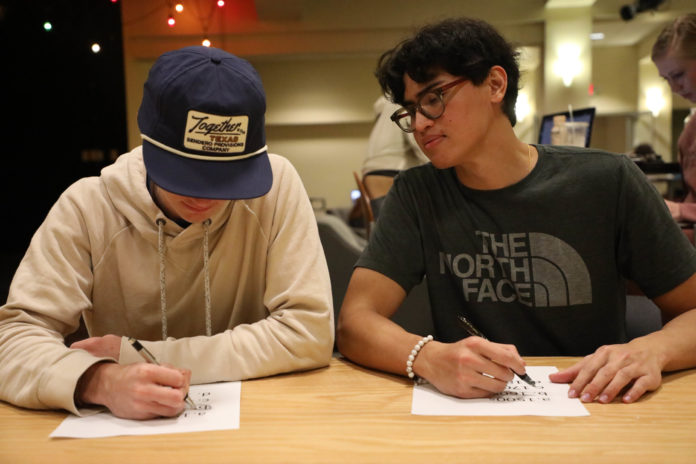
By Taylor Ellis | Guest Contributor
A recent increase in cheating has led many professors to report to Baylor’s Honor Council this semester.
According to the Journal of Business Ethics, a study revealed that 60% of the business students and 64% of the non-business students — out of the 144 sampled — confessed to cheating at some point in their college career.
Professor Cari Edison said that instances of cheating are a betrayal of her trust and that she feels as though it is more of a personal feeling of disappointment than anger.
“I hold my own kids accountable to be like Jesus, so I hold my students accountable as well,” Edison said.
Edison has been teaching at Baylor for 11 years and has reported a few students to the Honor Council. She said she feels that sending students to the Honor Council is necessary because similar instances could be happening in other classes.
Within the last week, Edison, along with other accounting professors, have had to rewrite an entire exam due to students cheating when they were held personally responsible for upholding the Honor Code.
Honor Council member Lauren Boatright described the composition of the council as a mixture of students, faculty and staff, where only six to eight members vote on any case.
“We do not look at intent but instead at the student’s actions,” Boatright said.
Students are held responsible for what is stated in individual professors’ syllabi and are expected to understand what is considered cheating under the Honor Code.
However, contrary to expectations that students cheated more easily and therefore did better in their online classes, Edison said her online accounting classes during COVID-19 performed more poorly, even though the temptation to cheat was high.
“I have never cheated, but I know that during our online quizzes the professors tell us to put away our books, and some of my classmates do not because of the temptation with it being at home,” Emma Root, a graduate student at the Diana R. Garland School of Social Work, said.
Edison said she has noticed a pattern when it comes to her accounting students who find themselves participating in cheating.
“They [students who cheat] are usually high-achieving students who struggle with making poor grades, so they feel more inclined to succeed,” Edison said.
Edison said she believes her accounting students resort to cheating because of the added pressures that they, and the department, place upon them to succeed.
Edison said she feels as though cheating is an ethical dilemma that calls into concern personal morals and ethics, which is especially vital to an accountant, who oversees faithfully representing people’s assets.
Edison said that throughout life, there will be decisions based on doing the right thing, so she believes it should be taught and enforced from a young age.





